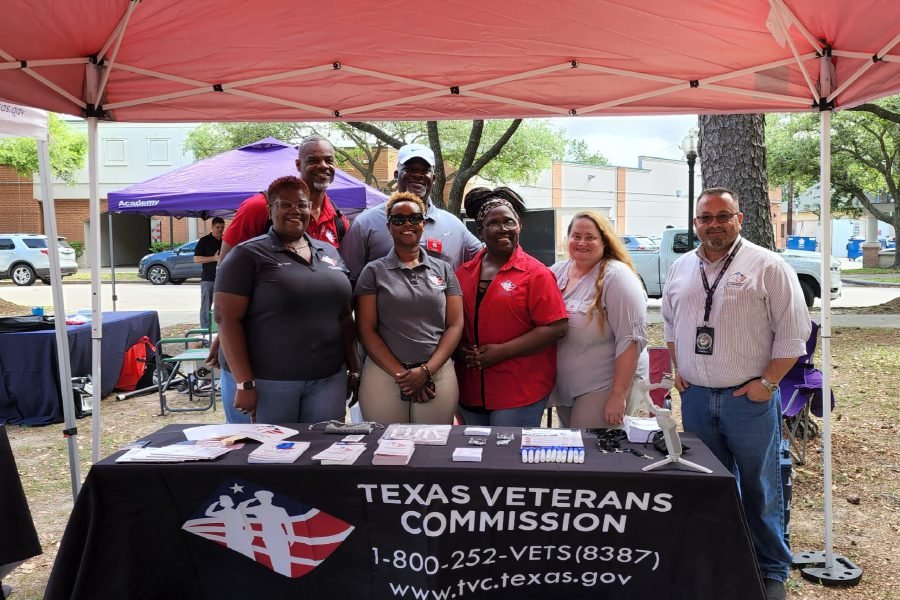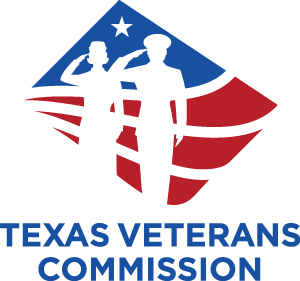The Texas Veterans Commission (TVC) is committed to assisting veterans seeking certification or training to prepare them for employment in the state of Texas. TVC’s Veterans Employment Services (VES) work closely with the staff in 28 Local Workforce Development Areas (LWDAs) throughout the state to link veterans with veteran-friendly employers that are seeking to hire veterans.

Job Seeker Resources
Veterans Preference
State Law
The State of Texas is dedicated to hiring qualified veterans and their family members in achieving their employment goals. To assist state agencies, Texas Government Code Chapter 657 establishes guidance on Veteran’s Employment Preference. The following individuals qualify for a veteran’s employment preference:
- a veteran, including a veteran with a disability;
- a veteran’s surviving spouse who has not remarried;
- an orphan of a veteran if the veteran was killed while on active duty;
- the spouse of a member of the United States armed forces or Texas National Guard serving on active duty; and
- the spouse of a veteran if the spouse is the primary source of income for the household and the veteran has a total disability rating based either on having a service-connected disability with a disability rating of at least 70 percent or on individual unemployability.
Federal Guidance
The US Department of Labor’s website provides Veterans’ Preference Information for federal government jobs as well as guidance and programs to help private businesses Hire a Veteran.
Priority of Service
The Department of Labor and the State of Texas recognize and salute the men and women who have served in the U.S. Armed Forces. In honor of our “Heroes at Home” numerous employment and training programs are available to identify, inform, and deliver comprehensive services to all veterans and qualified spouses of veterans.
Veterans possess unique attributes and contribute important skills and resources to the workplace, and for this and other reasons, the Department of Labor has recently reinforced its implementation of Priority of Service for veterans and qualified spouses of veterans.
Priority of Service means that all veterans and qualified spouses of veterans are entitled to precedence over non-veterans in obtaining the full array of employment, training, and placement services, as well as Priority of Service pertaining to any applicable eligibility requirements for those programs and services. We encourage you to take advantage of this opportunity and visit your nearest Workforce Center to inquire about the specific entitlements your veteran status affords you.
To qualify for Priority of Service, you must fall in one of the following categories:
- Veteran. A veteran is any person who served in the active military, naval, or air service, and who was discharged or released there from under conditions other than dishonorable.
- Qualified Spouse. A qualified spouse is the spouse of:
- any veteran who died of a service-connected disability.
- any member of the Armed Forces serving on active duty who, at the time of application for Priority of Service is listed in one or more of the following categories and has been so listed for a total of more than 90 days:
- missing in action.
- captured in line of duty by a hostile force or,
- forcibly detained or interned in line of duty by a foreign government or power.
- any veteran who has a total disability resulting from a service-connected disability.
- any veteran who died while a disability (as outlined in the previous bullet) was in existence.
To qualify for Veteran Representative Services, veterans must meet the following definition:
- Veteran. A veteran is any person who:
- served on active duty for a period of more than 180 days and was discharged or released there from with other than a dishonorable discharge;
- was discharged or released from active duty because of a service-connected disability; or
- as a member of a reserve component under an order to active duty, served on active duty during a period or war or in a campaign or expedition for which a campaign badge is authorized, and was discharged or released from such duty with other than a dishonorable discharge.
- Qualified Spouse. A qualified spouse as defined above.
Please contact a Workforce Center Representative or a Veteran Employment Representatives (VER) at your local Workforce Center if you have any questions about eligibility for Priority of Service and/or you want information on the services and programs available to veterans and qualified spouses of veterans.
Re-employment Rights (USERRA)
State Law
A veteran is entitled to reemployment rights with his last employer when he is released from the Armed Forces of the United States, providing his absence is no longer than four years. The right of reemployment is available regardless of whether the veteran was, prior to service, employed by the State, county or city government, or by private industry.
Reemployment rights of veterans are now provided by both State and Federal laws. We have posted the State Law, Texas Government Code Chapter 613.001-613.006; and 613.021-613.023, Enforcement, is below.
Texas Government Code
Review the Texas Government Code Chapter 613.001-613.006; and 613.021-613.023.
Federal Law
The Uniformed Services Employment and Reemployment Rights Act (USERRA)
The Uniformed Services Employment and Reemployment Rights Act (USERRA) protects service members’ reemployment rights when returning from a period of service in the uniformed services, including those called up from the reserves or National Guard, and prohibits employer discrimination based on military service or obligation. The U.S. Department of Labor’s (DOL) Veterans’ Employment and Training Service (VETS) administers USERRA.
USERRA Information and Complaint Process
If you believe your USERRA rights may have been violated, or you are an employer seeking compliance assistance, you may consider one of the following options:
- Seek assistance from the Employer Support of the Guard and Reserve; 1-800-336-4590.
ESGR is a U.S. Department of Defense entity established in 1972 to promote cooperation and understanding between Reserve component members and their civilian employers and to assist in the resolution of conflicts arising from an employee’s military commitment. It operates through a network of thousands of volunteers throughout the nation and Guam, Puerto Rico, and the Virgin Islands. ESGR assists in answering USERRA questions from employees and employers and attempts to informally resolve disputes. - File a complaint with the U.S. Department of Labor, Veterans Employment & Training Service (DOL-VETS); 1-866-487-2365.
Information about USERRA, including an interactive guided program called the USERRA e-laws Advisor.
If you choose to file a USERRA complaint, DOL-VETS will investigate and attempt to resolve it; if its efforts at resolution are unsuccessful, you may have the option of seeking representation from either OSC (if the complaint involves a federal executive agency, with certain limited exceptions) or the U.S. Department of Justice (if the complaint involves a state, local, or private employer).
Veteran Readiness and Employment (VR&E)
If you have a service-connected disability that limits your ability to work or prevents you from working, explore your Veteran Readiness and Employment (VR&E) benefits.
Energy Industry Resources For Veterans Professional Development
Transferring your Occupational License to Texas
Moving around the world can be an adventure, but it can also be a difficult process. Facing challenges such as transferring your occupational license is just one of the barriers you will encounter.
Because of the delays and expense involved in re-licensure, Texas has implemented license portability measures for military service members, veterans, and military spouses that may include expedited applications, temporary licenses, fee waivers, or license reciprocity. To learn more visit The Texas Department of Licensing and Regulations (TDLR)
